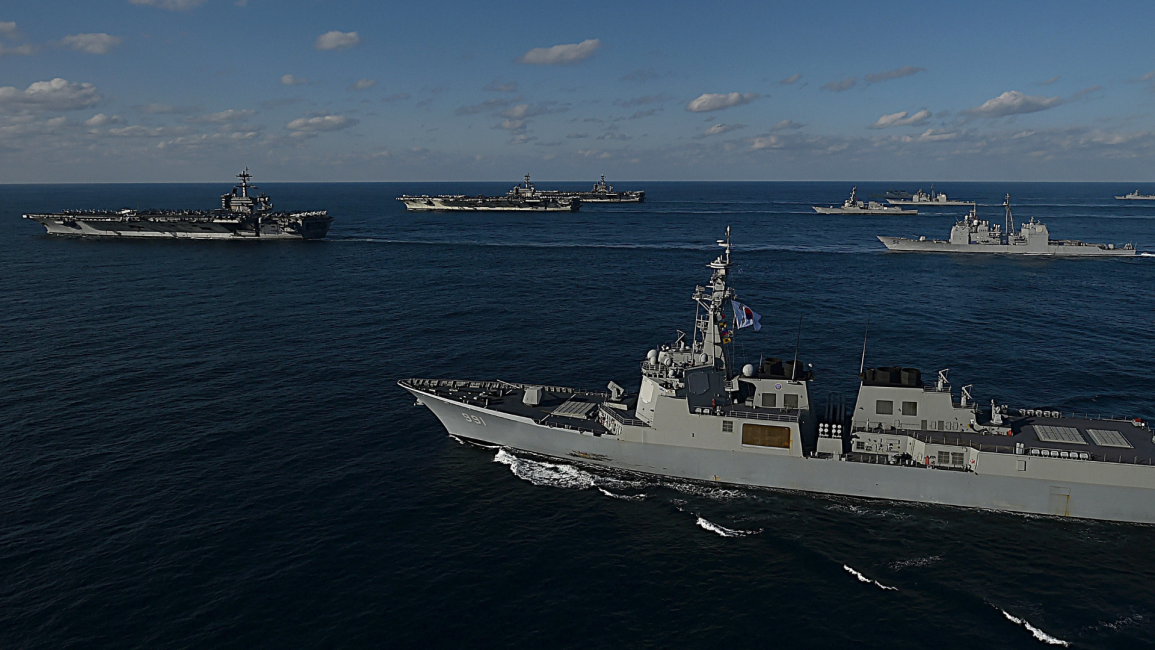Trump deploys US aircraft carrier, warships to Gulf region
The carrier was "to provide combat support and air cover as US troops withdraw from Iraq and Afghanistan by January 15 under President Trump’s orders", a CNN reporter said, citing a defence official.
The move was reportedly decided before the assassination of Iranian scientist Mohsen Fakhrizadeh "but the movement of the US forces is an increased deterrence message to Iran regardless", the official noted, according to CNN journalist Barbara Star.
The movement, which puts increased American military firepower and thousands of personnel into the region in the last days of the outgoing Donald Trump Administration, leaves the decision to President-elect Joe Biden to decide or when to withdraw.
On Saturday, Iran's president vowed to exact revenge over the killing of the prominent scientist linked to Tehran's disbanded military nuclear program, as he joined other officials in blaming Israel for the slaying.
The assassination threatens to renew tensions between the US and Iran in the waning days of Trump's term, just as Biden has suggested his administration could return to Tehran's nuclear deal with world powers from which Trump earlier withdrew.
Twitter Post
|
Speaking to a meeting of his government's coronavirus taskforce, Rouhani reiterated that Fakhrizadeh’s death would not stop its nuclear program.
Iran's civilian nuclear program has continued its experiments and now enriches uranium up to 4.5%, far below weapons-grade levels of 90%.
But analysts have compared Fakhrizadeh to being on a par with Robert Oppenheimer, the scientist who led the US' Manhattan Project in World War II that created the atom bomb.
"We will respond to the assassination of Martyr Fakhrizadeh in a proper time," Rouhani said.
"The Iranian nation is smarter than falling into the trap of the Zionists. They are thinking to create chaos," he added.
Israel, long suspected of killing scientists a decade ago amid tensions over Tehran's nuclear program, has yet to comment on the killing on Friday of Fakhrizadeh. However, the attack bore the hallmarks of a carefully planned, military-style ambush.
The attack comes just days before the 10-year anniversary of the killing of Iranian nuclear scientist Majid Shahriari that Tehran also blamed on Israel. That and other targeted killings happened at the time that the so-called Stuxnet virus, believed to be an Israeli and American creation, destroyed Iranian centrifuges.
Those assaults occurred at the height of Western fears over Iran's nuclear program.
Tehran long has insisted its program is peaceful. However, Fakhrizadeh led Iran’s so-called AMAD program that Israel and the West have alleged was a military operation looking at the feasibility of building a nuclear weapon.
The International Atomic Energy Agency says that "structured program" ended in 2003.
IAEA inspectors monitor Iranian nuclear sites as part of the now-unraveling nuclear deal with world powers, which saw Tehran limit its enrichment of uranium in exchange for the lifting of economic sanctions.
After Trump's 2018 withdrawal from the deal, Iran has abandoned all those limits.
Experts now believe Iran has enough low-enriched uranium to make at least two nuclear weapons if it chose to pursue the bomb.
Agencies contributed to this report.
Follow us on Facebook, Twitter and Instagram to stay connected



